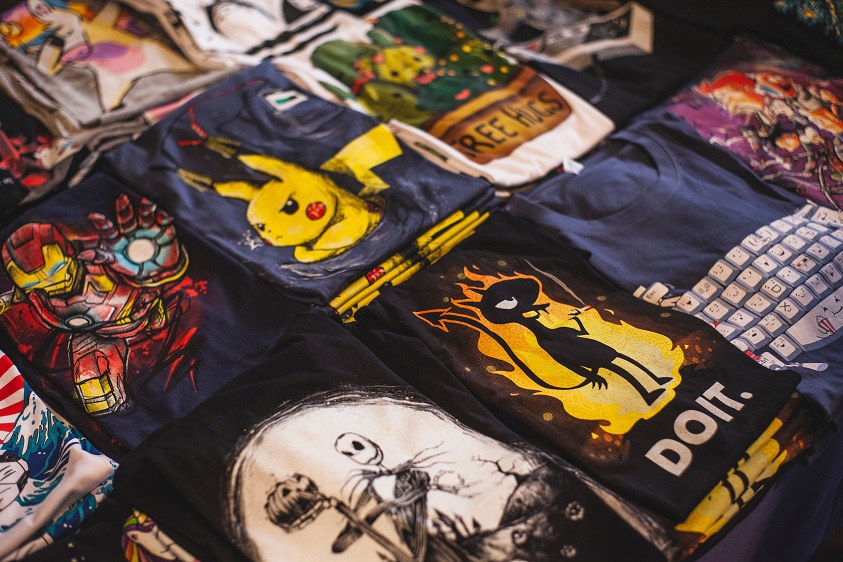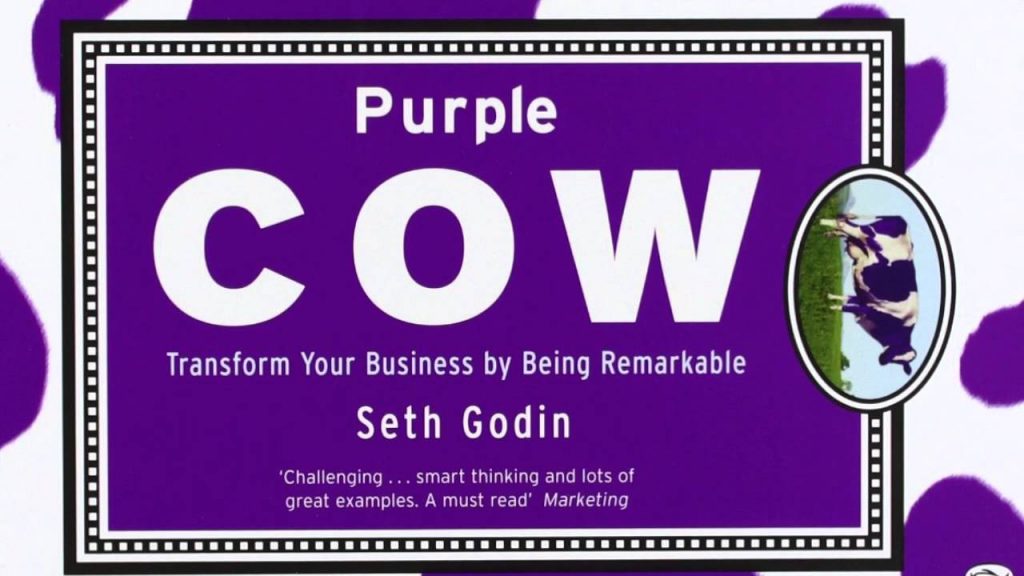
The marketing genius Seth Godin (you should know this person) points out specifically in his book, “The Purple Cow,” that being different is a selling point in your favor (as long as you put a little thought into it). Before we delve into the main topic, lets look at a handful of common merch items; The album/ep/dvd/tape/record, the wearables like t-shirts and hats, the accessories like coffee cups and tote bags and phone cases, keepsakes like posters/autographs/selfies, tattoos/facepainting or other on-site services onto whatever you basically imagine. The question that comes into the light isn’t what you can make but rather what should you make?

So, lets think about that. Well, what is your goal for selling merch? Is it to make money? It kinda has to be for making money if you’re selling it, (but you can make money without selling merch too [we’ll talk about that]) but it doesn’t have to be. For now, let’s assume you’re selling merch to make money, whether its to simple break even and pay off an investment, to pay for gas to get to the next gig, or to make enough money to pay your team or just yourself, you ARE trying to sell something and that really means you’re looking at needing to have something that will sell. The truth is that there are no guarantees in business, however you can use your knowledge to lean things into your favor. Stock market genius Adam Khoo teaches something very similar in his courses that teach people how to Play the Stock Market Like a Casino series on Youtube (I highly recommend him, go check him out https://www.youtube.com/watch?v=bRCtBRsLPmk). He basically says that when you pick a stock it could go up or down, but that by using your knowledge you can increase your chances of getting your prediction right. With merch the same is true.
At least partially withstanding the music being good and there being people at your show, anything COULD sell, but thinking about why someone else would buy your merch is my advice. For our example, let’s pick a t-shirt. As we move into a time when anyone could print a t-shirt with just about anything on it, why would someone buy your t-shirt? Convenience is still a selling point. If you have a t-shirt, in someone’s size, with something the customer wants on it physically in front of them with no shipping time or extra costs maybe at a better cost since you can buy in bulk, then it should be an easy sell. This is an example of having exactly what someone wants or something that’s close enough, but this is hard to do especially with limited startup investment, plus there is a lot of excess possible as you could end up with certain sizes that don’t sell or even whole lines.
Luckily, since albums and t-shirts make up the bulk of what most bands/artists sell, almost anything else is a little unique by default, but usually these things fall into the “useless” bin. Coffee mugs or sunglasses or bottle openers or little drawings by the artist could fall here, but they have better chances of going home with someone if you make these things special. If I had plain white t-shirts (and wasn’t in the band of the same name), then it would be hard to sell the t-shirts and if the t-shirt had the same graphic as another one then it would hard to sell too. However, if I make a line of t-shirts with a picture not available online or add my signature (maybe an actual real one with an ink pen or a marker) or make single print absolutely unique t-shirts then as long as people like them, there’s a better chance of making money from the investment. This comes into another concept: For something to be unique it is by definition limited in quantity. A snowflake is indeed unique, but among a million snowflakes, it’s just another snowflake, so it’s all perspective, but I’m not planning on buying a snowflake either so…
There are tons of ways to make your products unique, but once you have whatever your product(s) then we need to look at unique ways of actually making money from merch besides the obvious of selling it. A great example of this is anything you give away that serves to promote your brand/music/live show/etc. Let’s say you give away stickers or even t-shirts in exchange for publicity instead of money from a cash sales transaction. People could see the stickers or your fans (read: “promoters” – Remember that your fans are most usually going to be an important part of your promotional efforts even if you don’t realize it!) and then when those people buy your music or a ticket to your show or just pass you on to someone else with domino-style promotional goodness, that you make money by giving away merch sometimes. You do need to think a plan like this through though because you could give away 1000 mixed tapes and never get anywhere depending on many factors including the quality of the music or the audience you decide to engage (which may be quite different from the audience that would engage you).
That brings me back to a concept introduced to me in another one of Seth Godin’s books called “Tribes” where he explains how you have to find your tribe (go read it): You’ve got to tap into the people with whom you should be trying to connect.
So besides people (or you) wearing your own t-shirts or putting up your own stickers that promote another sale that brings in money, you could also do something with another company. For example, you could work with a company that is willing to add their name to your t-shirt run promoting them and then they could pay you for advertising either by directly paying for part of the costs or whatever way you can think up. This is more like sponsorship and I’ll do several posts about sponsorship eventually, if they aren’t already up by the time you read this.
Besides outright sales or sponsorships, you could use merch as a prize for a contest or a raffle, both of which are easy to think of ways to use to make money, so I’ll move along.
We’ve covered creating unique merch in the first place to make money or increase how much you’re making, converting merch into promotional items that drive a sale elsewhere, the sister concept of sponsorship to contests or raffles, The bottom line is that you’re making a sale, somewhere and unique merch sells better. Figuring out how to make your merch unique is probably the harder part of that equation, but once you’ve got it, don’t stop there, think of what you can do with you’re unique product and you’ll find there’s plenty of ways that you may have never thought of.
If you want some personal help you can reach out and I’ll be glad to help.
Be First to Comment